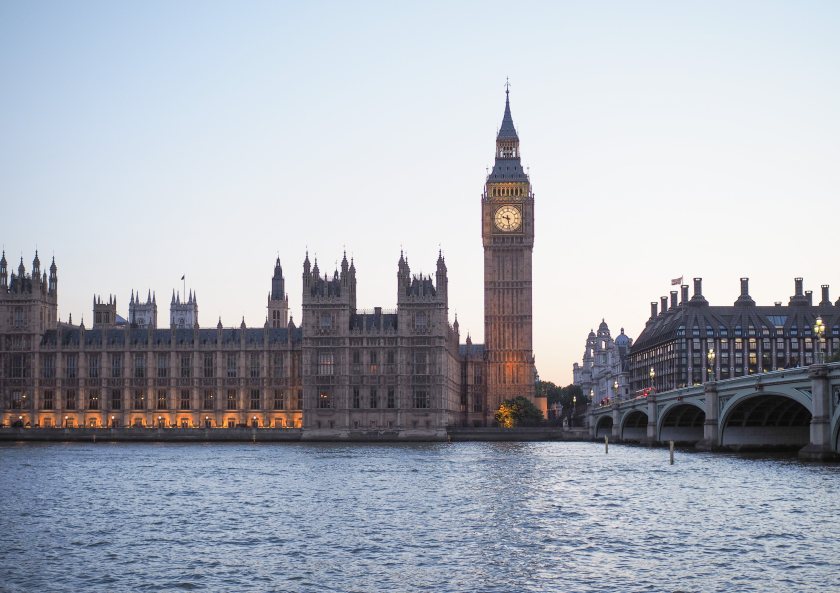
If 2022’s mini-Budget created chaos for British businesses by introducing un-costed tax cuts, the same can’t be said for today’s announcements.
In this article, UK delivery firm Parcelhero explains the impact of today's autumn budget on the manufacturing and logistics sectors.
A £40bn tax rise means spending has been clearly costed but the ultimate cost to UK businesses remains to be seen.
Chancellor Rachel Reeves’ Budget for a ‘decade of national renewal’ aimed to ‘put more pounds in people’s pockets’.
But its impact on SME businesses and their logistics and delivery partners could be significant.
The Chancellor wisely trailed much of her bad news ahead of today’s Budget and even floated some red herrings.
That meant some of the measures most feared by SME businesses and delivery companies, such as a sharp rise in fuel duties, didn’t materialise.
However, Chancellor Reeves was blunt about the fact that the Budget would mean a £40bn tax raise.
Since Labour had already pledged that burden would not fall on working people, it wasn’t hard to guess who would bear the brunt.
You cannot make an omelette without breaking eggs and a number of her announcements will have left SMEs reeling.
NI contributions
Top of the list is the fact that, not only will employers' National Insurance contributions rise from 13.8% to 15%, but also the threshold at which businesses start paying NI on workers’ earnings will be lowered from £9,100 to £5,000.
That threshold change is likely to be at the worst end of small employers’ fears and could result in lower pay rises for existing employees and delayed expansion plans for many companies.
Better news for SMEs employing a small number of lower-paid workers was that employment allowance will increase from £5,000 to £10,500.
That means some 865,000 employers won’t pay any National Insurance at all next year.
Minimum wage
Flagged up in advance were other measures that could increase employers’ expenses, including raising the minimum wage for over 21s by 6.7%, from £11.44 to £12.21 from April 2025.
That ties in with further increases for 18-20 year olds and apprentices, with the aim of having a uniform rate in the future.
Business rates
While we already knew corporation tax would be frozen at 25% for the duration of this Parliament, businesses were also very concerned about planned increases to business rates.
Perhaps surprisingly, there was no significant reform of these rates announced in the Budget, despite the fact that Labour is known to be examining the system.
Instead, there was a mixed bag of news. The current 75% discount to business rates was due to expire in April 2025 under the former Government’s plans.
The good news is that a discount will be maintained for rates up to £110,000 but by a lowered discount of 40%. That means that many businesses could still see their business rates doubled.
Retailers relief?
While there were a number of blows to retailers, there were also some welcome announcements in the Chancellor’s speech.
Reeves announced she would end the “effective immunity” for low-value shoplifters and introduce new funding for a crackdown on organised crime groups that target retailers.
The Government’s much-vaunted National Wealth Fund was also fleshed out with spending announced for ports, new giga factories and organisations such as Make UK.
£1bn funding for aerospace projects and £2bn for the UK’s beleaguered automotive sector will also be welcome.
Leavening logistics’ load
Despite being significantly impacted by a number of the Chancellor’s new taxes, logistics, supply chain and delivery companies will welcome a number of the new initiatives.
Britain’s crumbling roads infrastructure will receive a £500m increase in road maintenance funding, with money to fix 1 million potholes a year, claims Reeves.
Also welcome will be the news that £650m a year will be invested in local transport projects.
The biggest transport infrastructure news is that HS2 will now proceed all the way to Euston, rather than stopping at Old Oak Common, which was the (rather batty) plan under the last Government.
That should help decrease the burden on London’s roads network as more people are tempted to ditch their cars.
HS2 will also mean existing lines are freed-up for more freight services, getting more goods off Britain’s crowded roads.
Announcements about the TransPennine rail route and new mass transport schemes will also be welcomed by hauliers and couriers using the north’s congested road networks.
The verdict
If ever a Budget could be called a curate’s egg for the UK’s SME businesses, this is it.
The good news is that it is unlikely to unleash a spiral of inflation as did Liz Truss’ now-notorious 2022 ‘KamiKwazi’ mini-budget.
Instead, spending has been clearly costed. But the cost to UK businesses remains to be seen.